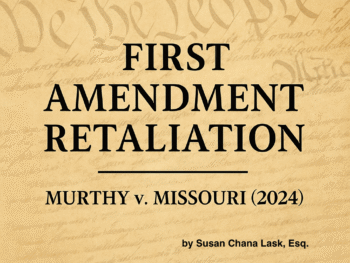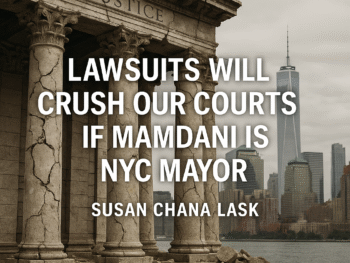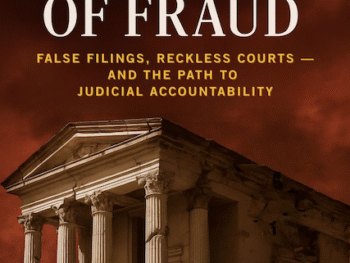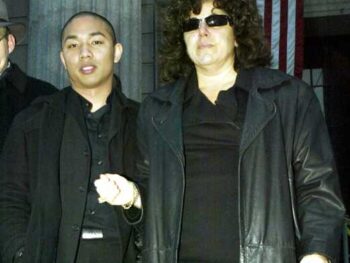Joining Trend, 3rd Circuit Upholds Jails’ Blanket Strip-Search Policy
The Legal Intelligencer
September 23, 2010
For decades, it was well settled in federal law that jails cannot employ a blanket strip-search policy that includes even those arrested on minor offenses whose behavior would not trigger any reasonable suspicion of the need for such an intrusive search.
Those days are over.
The pendulum is now swinging in the other direction and the law is very much in flux as illustrated by Tuesday’s decision from the 3rd U.S. Circuit Court of Appeals that upheld blanket strip-search policies in two New Jersey counties.
Voting 2-1, the 3rd Circuit decided to follow recent rulings by two of its sister circuits in holding that jails must be given broad powers to use a mandatory strip search for every new detainee in order to prevent the influx of weapons, drugs and other contraband.
But a dissenting judge said he feared that the majority was “giving jailors the unfettered right to conduct mandatory, routine, suspicionless body cavity searches on any citizen who may be arrested for minor offenses, such as violating a leash law or a traffic code, and who pose no credible risk for smuggling contraband into the jail.”
Writing for the majority, 3rd Circuit Judge Thomas M. Hardiman noted in Florence v. County of Burlington that 10 circuits had struck down such blanket strip-search policies, but also noted that a new trend has recently emerged in which two of the 10 reversed course.
The 11th Circuit in 2008 granted en banc review and overturned its own prior precedent in declaring that blanket strip-search policies in jails are not illegal. The 9th Circuit also went en banc in 2010 to do the same, overturning its precedent to uphold blanket strip searching.
Since the 3rd Circuit had never addressed the issue, the three-judge panel that heard the appeal was writing on a clean slate and was free to go either way.
Hardiman, who was joined by 3rd Circuit Judge Dolores K. Sloviter, opted not to follow the majority of the circuits, but instead to join the recent trend.
“Balancing the jails’ security interests at the time of intake before arrestees enter the general population against the privacy interests of the inmates, we hold that the strip search procedures [in Burlington and Essex counties] are reasonable,” Hardiman said.
“Subjecting all arrestees to the same policy promotes equal treatment,” Hardiman said.
Hardiman said the U.S. Supreme Court “repeatedly has emphasized that courts must defer to the policy judgments of prison administrators.”
Lawyers for the plaintiffs argued that the jails’ interest in preventing smuggling could be achieved through means less intrusive than strip searches. Specifically, they pointed to the Body Orifice Scanning System, or “BOSS Chair,” described in court papers as a “non-intrusive scanning system designed to detect small weapons or contraband metal objects concealed in oral, anal or vaginal cavities.”
But Hardiman was unimpressed, saying the plaintiffs had not shown that BOSS would be just as effective as a strip search.
“Aside from the fact that there is no evidence regarding the efficacy of the BOSS Chair in detecting metallic objects, it would not detect drugs and other non-metallic contraband.”
In dissent, visiting U.S. District Judge Louis H. Pollak of the Eastern District of Pennsylvania said he would have upheld the lower court’s injunctions against the blanket policies.
Pollak quoted extensively from several opinions including the main dissent in the 11th Circuit case that said: “The right to be free from degrading, humiliating, and dehumanizing treatment and the right to bodily integrity, include protection against forced nakedness during strip searches in front of others.”
Attorney J. Brooks DiDonato of Parker McCay in Marlton, N.J., who argued the appeal for Burlington County, said in an interview that the 3rd Circuit’s decision “does reflect a trend” in which the courts are “beginning to recognize that the need for institutional security is of paramount importance.”
Attorney Susan Chana Lask of New York, who argued the case for the plaintiffs, vowed to continue the fight — first by seeking reconsideration or full-court review from the 3rd Circuit and noting, “If we have to go to the U.S. Supreme Court we will.”
Lask said she was disappointed that the 3rd Circuit majority seemed to get some of the facts wrong when it described the strip-search process as one that protected some modicum of privacy. Instead, she said, the record showed that arrestees are often strip-searched in public areas, sometimes in groups of up to five.
Copyright 2010. ALM Media Properties, LLC. All rights reserved.










 Legal News Says Lask Makes History in Foreclosure Crisis
Legal News Says Lask Makes History in Foreclosure Crisis